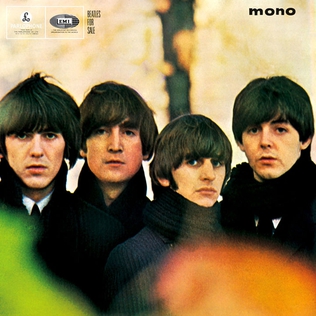
Beatles for Sale is the fourth studio album by the English rock band the Beatles. It was released on 4 December 1964 in the United Kingdom on EMI's Parlophone label. The album marked a departure from the upbeat tone that had characterised the Beatles' previous work, partly due to the band's exhaustion after a series of tours that had established them as a worldwide phenomenon in 1964. Beatles for Sale was not widely available in the US until 1987, when the Beatles' catalogue was standardised for release on CD. Instead, eight of the album's fourteen tracks appeared on Capitol Records' concurrent release, Beatles '65, issued in North America only.
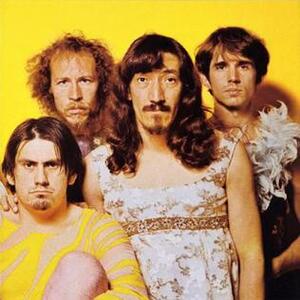
We're Only in It for the Money is the third studio album by American rock band the Mothers of Invention, released on March 4, 1968, by Verve Records. As with the band's first two efforts, it is a concept album, and satirizes left- and right-wing politics, particularly the hippie subculture, as well as the Beatles' album Sgt. Pepper's Lonely Hearts Club Band. It was conceived as part of a project called No Commercial Potential, which produced three other albums: Lumpy Gravy, Cruising with Ruben & the Jets, and Uncle Meat.
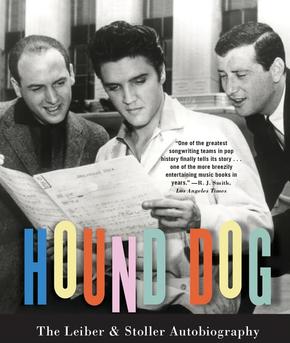
Leiber and Stoller were an American Grammy award-winning songwriting and record production duo, consisting of lyricist Jerome Leiber and composer Michael Stoller They wrote numerous standards for Broadway.

Hot Rats is the second solo album by Frank Zappa, released in October 1969. It was Zappa's first recording project after the dissolution of the original version of the Mothers of Invention. Five of the six songs are instrumental; while "Willie the Pimp", features vocals by Captain Beefheart. In his original sleeve notes, Zappa described the album as "a movie for your ears".

Live! at the Star-Club in Hamburg, Germany; 1962 is a double album featuring live performances by the English rock band the Beatles, recorded in late December 1962 at the Star-Club during their final Hamburg residency. The album was released in 1977 in two different versions, comprising a total of 30 songs by the Beatles.
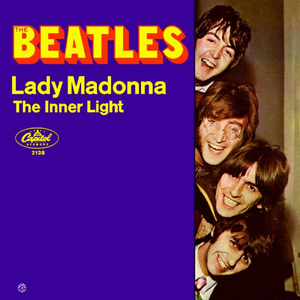
"Lady Madonna" is a song by the English rock band the Beatles, written primarily by Paul McCartney and credited to Lennon–McCartney. In March 1968, it was released as a mono single, backed with "The Inner Light". The song was recorded on 3 and 6 February 1968 before the Beatles left for India, and its boogie-woogie style signalled a more conventional approach to writing and recording for the group following the psychedelic experimentation of the previous two years.

The song "Hey-Hey-Hey-Hey", also known as "Hey-Hey-Hey-Hey! ", was written by Little Richard and recorded on May 9, 1956 at J&M Studio, New Orleans, Louisiana,.

Tutti Frutti is a song written by Little Richard and Dorothy LaBostrie, recorded in 1955, which was his first major hit. With its energetic refrain, often transcribed as "A-wop-bop-a-loo-mop-a-lop-bam-boom!", and its hard-driving sound and wild lyrics, it became not only a model for many future Little Richard songs, but also for rock and roll itself. The song introduced several of rock music's most characteristic musical features, including its loud volume, powerful vocal style, and distinctive beat and rhythm.
"Chapel of Love" is a song written by Jeff Barry, Ellie Greenwich and Phil Spector, and made famous by The Dixie Cups in 1964, spending three weeks at number one on the Billboard Hot 100. The song tells of the happiness and excitement the narrator feels on her wedding day, for she and her love are going to the "chapel of love", and "we'll never be lonely anymore." Many other artists have recorded the song.
Robert Alexander "Bumps" Blackwell was an American bandleader, songwriter, arranger, and record producer, best known for his work overseeing the early hits of Little Richard, as well as grooming Ray Charles, Quincy Jones, Ernestine Anderson, Lloyd Price, Sam Cooke, Herb Alpert, Larry Williams, and Sly and the Family Stone at the start of their music careers.

"Kansas City" is a rhythm and blues song written by Jerry Leiber and Mike Stoller in 1952. First recorded by Little Willie Littlefield the same year, the song later became a chart-topping hit when it was recorded by Wilbert Harrison in 1959. "Kansas City" is one of Leiber and Stoller's "most recorded tunes, with more than three hundred versions", with several appearing in the R&B and pop record charts.

Music in a Doll's House is the debut album by English progressive rock group Family, released on 19 July 1968. The album, co-produced by Dave Mason of Traffic, features a number of complex musical arrangements contributing to its ambitious psychedelic sound.
The Undertakers are a British beat group, contemporaries of the Beatles and a leading group in the Merseybeat music scene of the early 1960s. The Undertakers are still performing in 2019, led by Brian Jones.
The Beatles Anthology is a documentary television series on the career of the Beatles. It was broadcast on UK television in eight parts on ITV between 26 November and 31 December 1995, while in the United States it was seen as three feature-length episodes on ABC between 19 and 23 November 1995. It was released in greatly expanded form as an eight-volume VHS set and an eight-disc LaserDisc set on 5 September 1996. The series was re-released on DVD in 2003, with an 81-minute special-features disc.
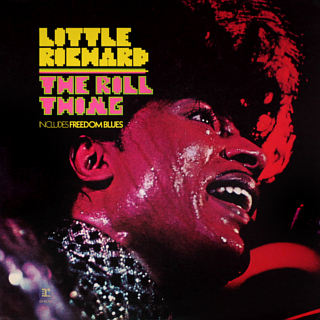
The Rill Thing is Little Richard's first album for Reprise Records, released in August 1970. It was considered a comeback album for Richard, following a three-year hiatus on new albums and an acclaimed performance at Atlantic City Pop Festival. The album utilizes a soul-influenced sound and contains Little Richard's biggest post-Specialty single in "Freedom Blues", which broke the Billboard top 50. The follow-up single, "Greenwood, Mississippi" made the top 100 and number 56 on Cashbox Black Singles. Despite the success of the singles, the album failed to chart.

Presenting the Gerry Mulligan Sextet is an album led by American jazz baritone saxophonist Gerry Mulligan featuring tracks recorded in 1955 and released on the EmArcy label.
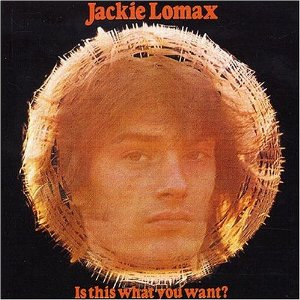
Is This What You Want? is the debut album by English rock and soul singer Jackie Lomax, released in 1969 on the Beatles' Apple record label. It was produced by George Harrison and features contributions from Harrison's Beatles bandmates Paul McCartney and Ringo Starr. The album includes Lomax's debut single for Apple, the Harrison-written "Sour Milk Sea". The US version added "New Day", which was produced by Lomax and released as a non-album single in Britain.

Miss Rhythm is an album by vocalist Ruth Brown featuring tracks recorded between 1954 and 1959 and released on the Atlantic label.

Paris Concert is a live album by saxophonist and bandleader Gerry Mulligan featuring performances recorded at the Salle Pleyel in Paris in June 1954 and released on the Pacific Jazz label. In 1966, Pacific Jazz released an album with the same title but with a slightly different track listing and edited versions of previously released tracks. The original recordings were made by Disques Vogue who issued the recordings in France.

Lee Konitz Plays with the Gerry Mulligan Quartet is a compilation album by saxophonist and bandleader Gerry Mulligan's Quartet with Lee Konitz featuring performances recorded in early-1953. The records on the album were originally released on 10-inch LPs Lee Konitz Plays with the Gerry Mulligan Quartet and Lee Konitz and the Gerry Mulligan Quartet on Pacific Jazz Records along with previously-unreleased tracks and alternate takes.
















